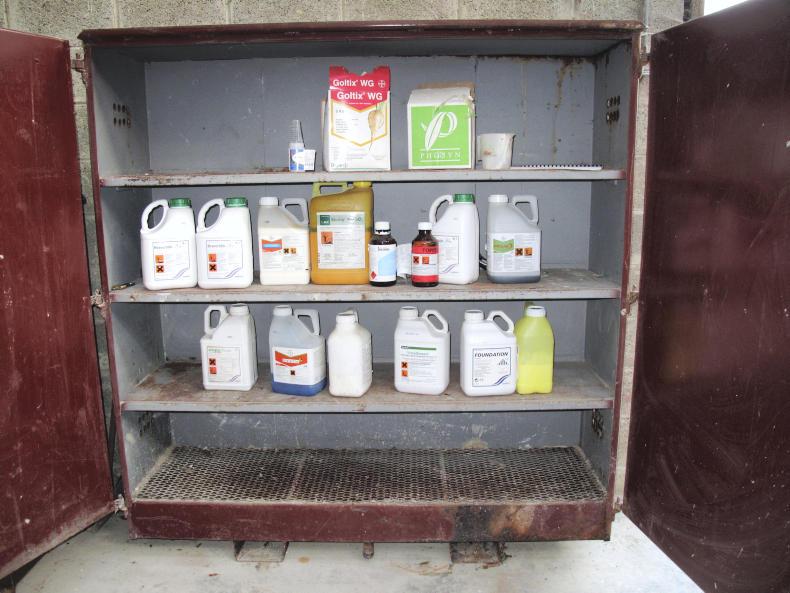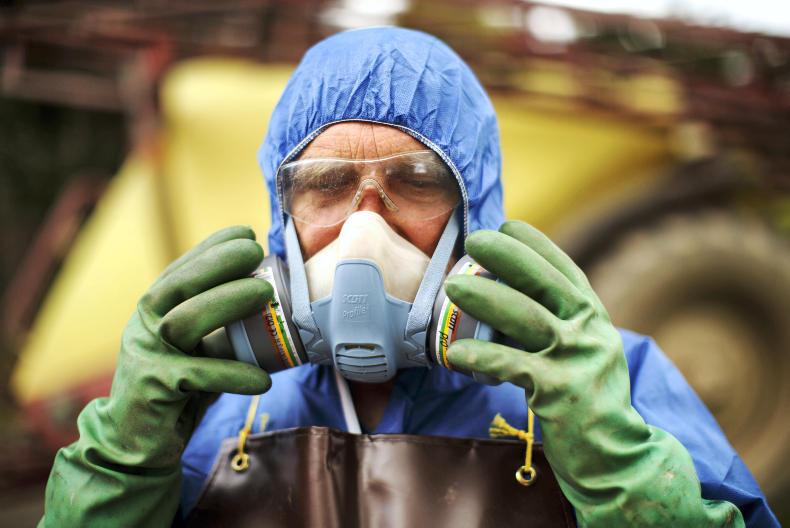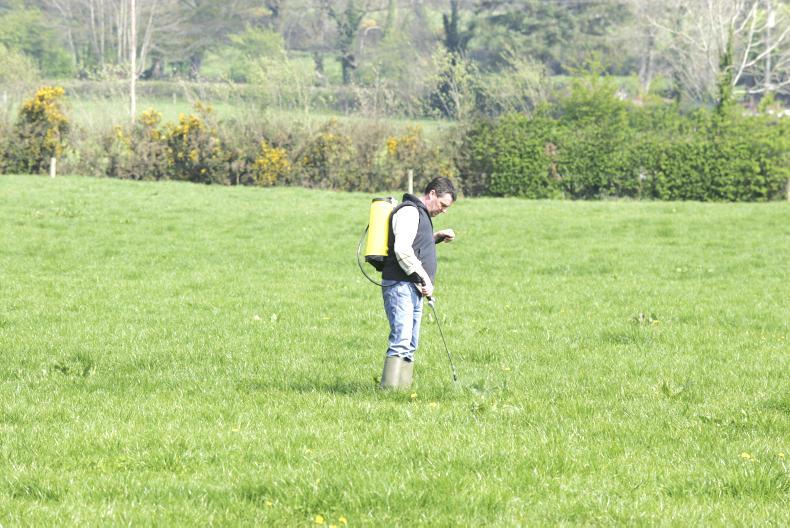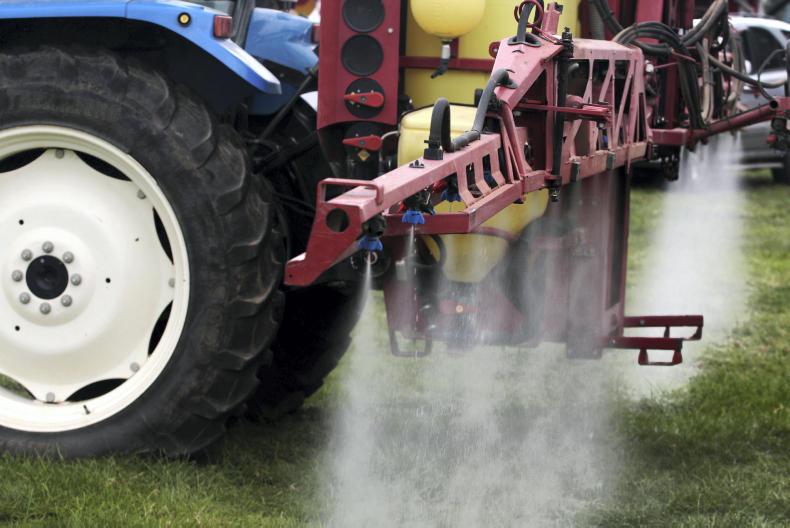May sees peak usage of pesticides on farms. Whether it is trailed sprayers in crops, docks in grassland or glyphosate around the farmyard, almost all farms are affected. And farmers are reminded to abide by the slew of regulations governing the purchase, storage and usage of pesticides.
Pesticides include weed spray (herbicide), disease control spray for crops (fungicide), adjuvants (sticker) and chemicals to control infestation of animal pests (insecticides).
Here are ten rules to remember.
1 Sprayers must be certified

Since last November, all boom sprayers over 3m in width and over five years old can only be used if in receipt of a certification label.
To date, 5,600 certification labels have been issued by the Department to the 132 registered equipment inspectors who carry out the testing and issue certificates to compliant equipment.
It had been previously estimated that there are more than 20,000 sprayers in the country. Knapsack sprayers do not need certification.
2 All sprayer operators must be approved

In order to apply pesticides using a boom, knapsack or quad sprayer, one must be registered as an approved professional user (PU) of pesticides. Only PUs can apply professional chemicals.
The only exception to this rule is for garden usage. Pesticides purchased in garden centres can be used by anybody. These often have the same active ingredients as commercial products – glyphosate (Roundup) and diflufenican (Pathclear) – but in smaller quantities and at a significantly higher unit cost.
According to the Department of Agriculture, more than 27,000 people have been approved as PUs.
In addition, there are 827 registered pesticide advisers and 620 registered distributors.
Many people may have the necessary training done, for instance as part of the Green Cert, but are not authorised as users until they have applied for and received a PU number from the Department.
3 All operators must maintain full inventories
At the start of each year, opening stocks in chemical stores should be recorded. All purchases should then be logged. Pesticides purchased must be either in-stock, used, returned unopened to the point of purchase, or safely disposed of if no longer required or out of licence.
4 Pesticide storage

Keep all chemicals in a locked storage area. It should have approved shelving. Typically plastic or metal, not timber, and be bunded (have a sealed base area to contain leaks). Powders and liquids should be stored separately. Externally, proper signage indicating the chemical store is mandatory.
5 Safety
Rubber gloves and protective footwear, a charcoal-filtered mask and a protective suit are all required

Wear proper safety equipment whenever handling pesticides. Rubber gloves and protective footwear, a charcoal-filtered mask and a protective suit are all required. Never smoke or eat when handling chemicals.
6 Filling
When filling a sprayer, make sure the area is away from groundwater or a waterway. Never fill directly from a waterway. Remember, the handling of concentrated chemicals when filling and mixing is extremely dangerous.
7 Knapsacks

Remember that only approved PUs can apply most chemicals, even with a knapsack. Relatively few pesticides are approved for knapsack usage – check the label for product information.
8 Disposal of empty containers
All containers should be triple-rinsed, punctured to avoid re-use, drip-dried, and stored for disposal to an approved recycling bring centre. Make sure to note the PCS number of each product before disposal for accurate records.
9 Records
It is required to keep a pesticide application record for every operation. Each field/plot should have its own record sheet. A further integrated pest management – IPM – sheet, explaining the purpose and nature of the operation, must be completed. The various record sheets – opening stocks inventory and usage – should tally.
10 Inspections
Cross-compliance will check for application of all the above rules on farms. It is in the interest of each individual not to attract such penalties. It is also important for the continued licensing of pesticides that the Sustainable Use Directive, which governs all the above rules, be seen to be successful and effective. The current high-profile campaign opposing the relicensing of glyphosate by the EU is a taste of things to come if farmers do not buy into the new regime.
Listen: 'Good old fashioned roundup should be used in normal way' - Hogan






 This is a subscriber-only article
This is a subscriber-only article














SHARING OPTIONS: